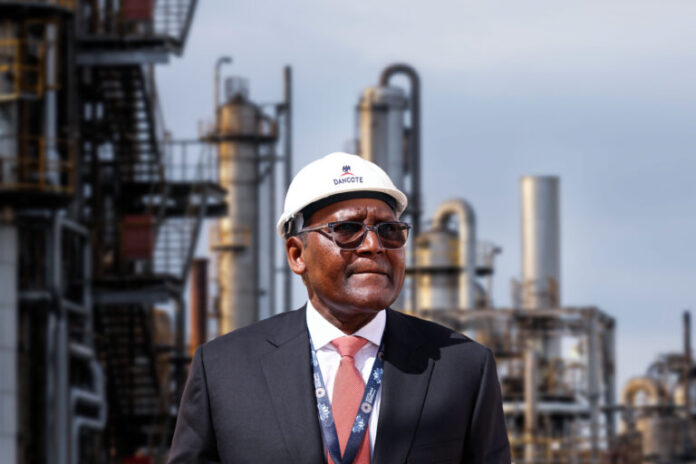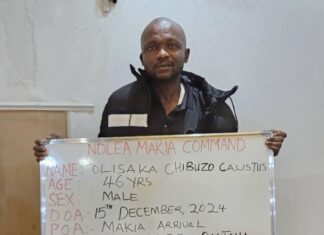Report shows Dangote group worst hit by dis/misinformation among businesses in Nigeria
By Eberechi Obinagwam
A team of Fact checkers on Dis/misinformation of Nigerian Businesses on Tuesday presented the first phase of their report on trackery, monitoring and desk research on disinformation in Nigeria.
Nigeria Employers’ Consultative Association (NECA) in conjunction with the Centre for International Private Enterprise (CIPE) commissioned a consultant, International Press Centre (IPC) to carry out an assessment on the behaviour of Disinformation in Nigeria through Tracking, Monitoring and Desk Research. The exercise was slated for a period of 5 months beginning from May 1, 2024.
Presenting the report to the coalition group, Ayo Aluko-Olokun, editor of the Nigerian Democratic Report International Free Centre said the findings show that thriving businesses, particularly the manufacturing and banking sectors suffer misinformation the most, with Dangote group being the highest mentioned with 17.8 percent, followed by Polaris Bank with 11.1 percent, Opay Nigeria with 11.1 percent, UBA 6.7 percent and First Bank 4.4 percent.
“For services and communication sectors, including Samsung, (6.7%), MTN (4.4%), Azmann Air, Dana Air, and 7up (each at 4.4 %) were also more affected. Others were Microsoft (2.2%), Arise Tv (2.2%) Air Paece (2.2%), Unity Bank (2.2%), Fidelity Bank, (2.2%), Keystone bank (2.2%) ans power distribution company (2.2%),” the report revealed.
Also, the report showed that false information about businesses trended most on social media, particularly on Facebook with more than one quarter 26.5 percent of false content track. It says, so far, online media followed with 16.3 percent X 10.2 percent; WhatsApp has 8.2 percent and TickTok 4.1 percent. Other less significant media sources he said, represented 28.6 percent.
According to him, the key findings of the research show that fake news purveyors are leveraging the noise around Nigeria’s economic challenges and the existence of foreign businesses from the country to weave damaging narratives against business firms.
“Today’s reality is that so many businesses and even citizens are facing serious economic challenges, particularly in recent times because of president Bola Tinubu’s twin polices around oil subsidy removal and the floating of the naira, base on this, fake news purveyors have been quick to leverage the noise around Nigeria’s economic challenges to publish falsehood. Our research shows that most of the businesses being falsely claimed to have exited the country were multinationals such as Shell with a false claim that it was selling its offshore subsidiary in Nigeria, (a claim debunked to be false as the company still retains ownership of three other subsidiaries,” Ayo, read in his report.
However, the team recommended setting up a platform to monitor and identify those spreading disinformation. Additionally, they suggested that industries explore technology to counter disinformation.
To further address the issue, Ayo emphasised that government should strengthen the mode of punishment on those spreading disinformation..
Olubunmi Osuntry, Secretary general, International Chamber of Commerce Nigeria in her remarks, said the project will help the private sector speak with one voice to combact wrong information. “The division among us will make them always take advantage of us to disseminate wrong information. Setting a right tone, NECA has done diligent to this project. The report has the contribution of everyone. Data information is absent in our economy and we are delighted to be part of it,” said.
Olubunmi also stated that it is not a project of one off, but a continuous one that will help the nation’s economy to compete with our counterparts all over the world.
Toochukwu Akpa, Senior Executive SLA Division/Research of NECA, disclosed that the second phase of the assessment, which will cover the month of September, is ongoing and the presentation of the report will be presented to the Coalition in October.













